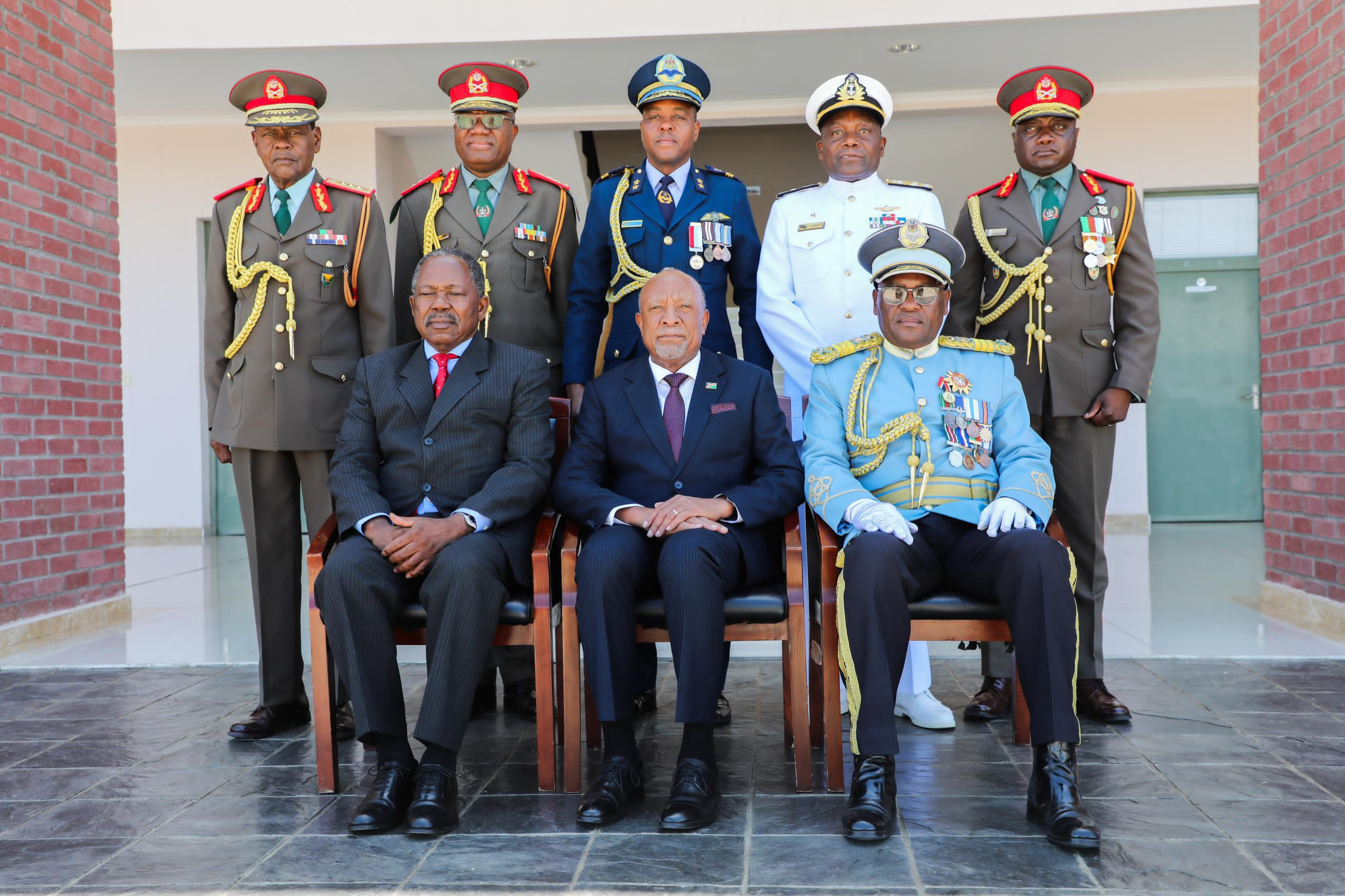On 7 July 2023, member of parliament Jerry Ekandjo tabled the ‘marriage amendment private member’s bill’ that redefines spouse as “one half of a legal union between a man and a woman of the opposite sex”, and marriage as “a legal union entered into between persons of opposite sex”.
The legislation is a response to the Digashu judgement handed down on 16 May 2023 in which the Supreme Court ordered the government to recognise same-sex unions validly concluded outside Namibia.
The court held that the government’s exclusion of same-sex couples in the interpretation of ‘spouse’ violates their right to equality and dignity as guaranteed in the Namibian Constitution.
The bill, however, goes further than reversing the ambit of the Supreme Court verdict – it prohibits any marriage officer or a person of any designation to “solemnise, witness, promote or propagate a marriage between persons of [the] same sex”.
People who contravene this provision are liable to a fine of not more than N$100 000 and/or imprisonment of six years.
This excessive provision implicates third parties and debilitates civil societies and brings their right to freedom of assembly, association and expression into contestation.
With the backing of the ruling party, the bill was passed swiftly on 11 July and is now with the National Council for consideration.
Constitutional expert Dianne Hubbard has commented that if passed by both houses, the bill “will almost certainly end up back in the Supreme Court when it is challenged on constitutional grounds – and… will almost certainly be struck down” (The Namibian, 11 July 2023).
But it is important at this stage to consider whether the courts are the only avenue to block the legislation from coming into effect, or whether Namibia’s constitutional framework provides for alternatives.
SEPARATION OF POWERS
The separation of power between the three branches of government – the executive, legislature and judiciary – is a fundamental feature of Namibia’s constitutional dispensation.
It ensures that one state organ does not exercise exorbitant power and that the entrenched constitutional rights of citizens are not arbitrarily and unreasonably violated.
In accordance with the Constitution, the executive power lies with the president and the Cabinet, the legislative authority with parliament, the judicial authority with the courts.
Though the oversight role of the courts is prominent, it is often the last resort to check executive and legislative power.
There are other checks and balances in the Constitution that regulate the powers of the legislator by the executive and vice versa.
In this context, I briefly consider the constitutional powers vested in the president to check and mitigate parliamentary power.
Passing legislation in Namibia requires the approval of three actors – the National Assembly (NA), the National Council (NC) and the president.
After the NA passes a bill by simple majority (50+1), it is referred to the NC for consideration, which then either confirms the bill or recommends that it be passed subject to amendments.
Thereafter, the NA may pass the bill again, either in its original form or an amended form. In this way, the NC serves an advisory function to the NA.
THE PRESIDENT’S POWER
The bill is then referred to the president for assent, which may give rise to three different scenarios.
First, where the bill was passed by two-thirds of parliament, the president must assent to the bill.
Second, if the bill was passed by a simple majority but such a majority was less than two-thirds of parliament, the president may either assent to the bill or withhold his assent.
Where he or she decides to withhold assent, it is referred back to the NA which can either pass it again in its original or recommended form or decline to pass it completely (Article 56).
At this stage, if the NA passes the bill again without a two-thirds majority, and “the President elects not to assent to the bill, it shall then lapse”.
In the final scenario, if in the president’s opinion a bill would, upon adoption, be in conflict with the Constitution, he or she may inform the attorney general (AG) who may then take appropriate steps to have the matter decided by a competent court (article 64).
On Tuesday, the AG concluded that the bill is “in compliance with the law and the Constitution”.
It is important to note that the AG is “the principal legal adviser to the president and government” and has no power over the interpretation of the Constitution.
While the president may consider his opinion, he is not obliged to abide by it and is entitled to invoke his powers in accordance with article 64 and instruct the AG to approach the court to consider the bill’s constitutionality.
Returning to the scope of article 64, if the court finds the bill is in conflict with the Constitution, such a bill lapses.
If it holds the contrary, the president retains his power in article 56 to refuse his assent if the bill was passed by a majority of less than two thirds of parliament.
With less than two thirds of parliament present for the vote on the marriage amendment bill, it was passed only by a simple majority.
Moreover, drawing on the Digashu judgement, the bill is also certainly unconstitutional.
These two facts mean the president can exercise the check and balance powers vested in him by the Constitution.
He can withhold his assent either by virtue of article 56 or 64 of the Constitution.
CONSTITUTIONAL PRINCIPLES OR PARTY POLITICS?
The political regime in Namibia allows a president to wear two hats – his party hat and his presidential hat.
The first operates in the realm of politics, and he is expected to act in accordance with his party’s vision and principles.
When elected as president of the nation, he is required to take an oath that he will “uphold, protect and defend as the supreme law the Constitution of the Republic of Namibia”.
There is no doubt that when the interests of the two hats come into conflict, the president is obliged to prioritise constitutional principles over partisan politics.
Several reports suggest the president – who has sought to build an ‘all-inclusive Namibian House’ – is not necessarily concerned with discriminating against sexual minorities, but that he is “under pressure from a faction in Swapo” to condemn the Digashu judgement.
Though it is unclear at this point whether the president has succumbed to the pressure of ‘party politics’, the moment he decides to either assent to the bill or exercise his powers in respect of articlse 56 or 64 will certainly shed light on the issue.
PROTECTIONS
The painful experiences of Namibians under the oppressive apartheid regime highlight the dangers of an unchecked parliament.
In a bid to prevent history from repeating itself, in their Constitution, the people contemplated checks and balances on state power that would anticipate and prevent a single branch of government from exercising excessive authority.
A good portion of those protections are vested with the president.
These safeguards are, however, meaningless if they are not actively implemented or are abandoned because of political expediency.
As private bills are not initiated by the government, nor subject to internal constitutionality checks by a select committee, they are susceptible to the personal agendas of MPs.
Furthermore, there was no input by civil society or other stakeholders, despite the bill’s supporters claiming it represents the view of the majority of Namibians.
In such cases, the mechanisms of checks and balances are perhaps more significant to ensure that such bills pass the constitutionality test.
We can now only hope the president will use his constitutional powers to protect the ‘life’ of the Constitution – as articulated in his oath to the Namibian people.
- Kelvin Vries is a PhD Candidate in constitutional law at the University of Oxford
Stay informed with The Namibian – your source for credible journalism. Get in-depth reporting and opinions for
only N$85 a month. Invest in journalism, invest in democracy –
Subscribe Now!






